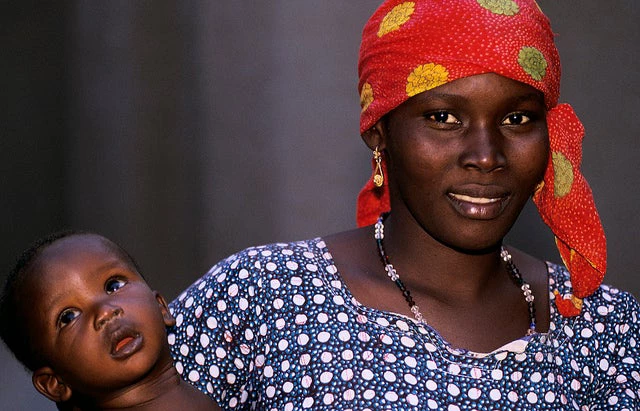
Natalie Roschnik was a newly minted graduate student when she accepted her first job with Save the Children in Mali. Nearly 20 years later, Roschnik knows Mali well: it’s one of the countries she travels to often as a Senior Research and Impact Advisor for Save the Children.
Roschnik is collaborating with SIEF on the evaluation of an integrated nutrition, malaria and early childhood development program in Mali, where 40 percent of all children under five are stunted and anemia rates are higher than 80 percent.
Save the Children works with local communities and government to create village preschools that prepare young children for primary school. Many children already arrive stunted due to poor nutrition and recurring diseases such as malaria and diarrhea, which prevents them from learning and developing to their full potential.
The SIEF supported evaluation is taking place in Sikasso region, where there are high rates of malnutrition. The evaluation will measure the impact of daily micronutrient supplements, combined with parent education and seasonal malaria treatment on children’s development. The hope is that combining treatments to address the myriad of problems young children can face will boost their brain and body development.
In a recent conversation with SIEF, Roschnik talked about why she’s passionate about evaluation and how being a parent has helped her development work.
How did you get interested in international development?
I’ve always wanted to do development work. After I did my Masters’ in nutrition in England, I got a job as an intern for Save the Children in Mali, where I helped set up a school health and nutrition program. I thought I was bringing such important skills, but I quickly realized how naïve I was. I ended up staying in Mali for two years and it was a huge learning curve.
How did you get into ‘impact evaluation’?
After two years in Mali and the Sahel, I worked for Save the Children on global school health and nutrition programs and research.
At the time, we had a sponsor-a-child program, which was one of our main sources of funding. Malaria kills a lot of school-age children every year and it wasn’t unusual for us to have to tell sponsors in the U.S. that the children they were sending money for had died. In many cases, the reason was malaria. We needed solutions that worked -- and evidence -- of what was working or wasn’t for the school age population, which was not targeted by standard government malaria prevention and treatment programs. So we partnered with the London School of Hygiene and Tropical Medicine on a study in Mali to evaluate school-based solutions.
How did you go about doing that?
The researchers suggested that, in addition to malaria education, we train teachers to treat all schoolchildren, regardless of infection, at the end of the malaria transmission season– similar to deworming programs in schools but for malaria. We used a randomized control trial design to measure the impact on children’s health and education.
The impact of treating children was huge: there was a dramatic decrease in malaria infection – from 80 percent to less than three percent – and anemia dropped from more than 50 percent to less than 35 percent, an effect that was sustained until the end of the school year. We also saw a significant improvement in cognitive function, with children more likely to pay attention for longer at school, an important requirement for successful learning. Among children in the control group, which wasn’t automatically treated in school for malaria, the infection rate remained above 70 percent.

Before we started the program we did a baseline survey to measure children’s health and cognitive functions, and we discovered that some 80 percent were infected with the parasites that cause malaria, but only two percent had visible symptoms, like a fever.
With or without a fever, having malaria parasites in the blood made the children anemic, which prevents them from concentrating and learning in school. Treating all children in school without testing each one for malaria first made the program cost effective and easy to implement at scale.
The randomized control trial made the difference in deciding what to do next. Based on the results, Save the Children and the government have expanded the intervention to around 400 schools in the area.
You have three children – has your work in development had an impact on your life as a parent?
Being a parent has been a good reality check and reminds me just how difficult it is to be a ‘perfect parent’ in your everyday life. I struggle to keep up with the health and education needs of my own children – helping them with homework, remembering vaccinations, giving them healthy food, and making sure they’re getting enough physical activity. We have so many expectations on parents in the communities where we work and load them up with messages on what they should be doing, often without thinking about what is doable and feasible in their everyday life.
What motivates you every day?
I work with great people and it’s exciting to be able to make a difference. Evaluation has given visibility to the work we do: anecdotal evidence only goes so far, and so having numbers to go with stories from the field makes the work we do so much more compelling.
Find out more about World Bank Group education on Twitter and Flipboard.
Learn about SIEF.


Join the Conversation